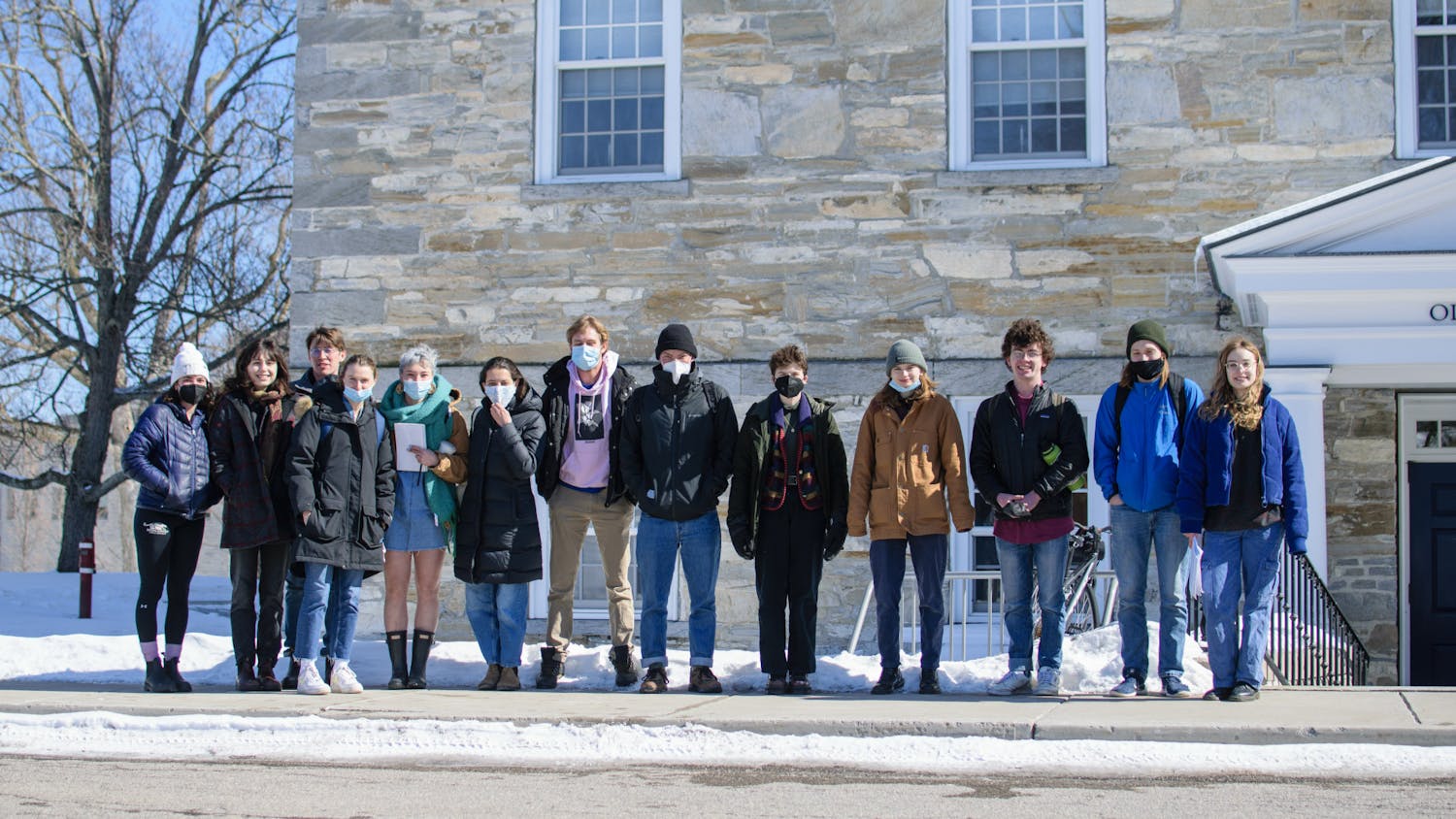More than 400 students have tested positive for Covid-19 since the beginning of the spring semester — with more than 100 cases reported on certain days during the past four weeks — leaving professors to reconsider how they should include students who cannot attend in-person class.
Middlebury professors have full autonomy over the modality of their classes, but now have to plan for students in isolation.
“As far as I can tell, [the school] is going for maximum flexibility and maximum autonomy for the faculty given how different our class structures are,” said Associate Professor of English and American Literatures Antonia Losano.
She has been offering a Zoom-in option for students in isolation, as well as recorded lectures for those who are symptomatic and do not feel well enough to attend virtual classes.
Some faculty have moved classes fully online or implemented a hybrid system that has some students on Zoom, while others decided to continue fully in-person classes.
Associate Professor of History Maggie Clinton decided to move her classes fully online last week to minimize the risks of spreading the virus to herself and her students.
“Is in-person teaching a three-hour seminar preferable? Yes. Was it worth putting myself and my students at further Covid risk? No,” Clinton said.
Clinton’s experiences with a foster care health clinic in Queens, New York during the start of the pandemic and personal struggles with at-risk family members informed this choice.
“I was interning for my MSW [Masters in Social Work] program at a foster care health clinic in Queens during 2019-2020 when COVID erupted, so witnessed from the start how devastating COVID is and can be, especially to underresourced communities of color,” Clinton said in an email to The Campus.
She said her decision to transition online was for the safety of family members, young children and members of the Middlebury community who may not have equal access to healthcare.
Although faculty have appreciated the freedom to adjust class structure and modality, this approach has left some students feeling excluded from learning while in quarantine. They expressed frustration that the school was allowing professors complete control over this issue.
“I don’t think these decisions should be left up to the professor. All classes should be adaptable,” Donovan Compton ’23, a student who was quarantined earlier this semester, said. “You don’t have to move the whole class online to make up for one or two people who have Covid-19, but allow them the opportunity to access the class.”
Offering an online option has been in debate since the start of the spring semester. Associate Professor of Political Science Sarah Stroup had planned on teaching in person and expected her students to be in the classroom, but about one third of her students have been absent from class since the start of the semester.
“One colleague described this to me as an attendance merry-go-round, when you don't know who is going to show up on any particular day,” Stroup said. “That's the part that is challenging, especially as we are building a shared foundation of knowledge and a community for dialogue.”
Stroup recently tested positive for Covid-19 and moved class online for the duration of her quarantine. She said that there were some benefits to being online, as it allowed for better class planning and equal attention to all students. Despite these benefits, she described the lack of energy during her Humanitarian Action class’s discussion over Zoom.
“[This week] culminated in a discussion section on the 1993-1994 Somalia intervention,” Stroup said. “While the students were excellent and very well prepared, the energy was low and it wasn’t quite the exciting and dynamic classroom experience it could be.”
Stroup also addressed the recent policy change from the school, which announced that masks will no longer be required in most indoor spaces — barring classes — beginning on March 18. She tested positive for Covid on a Monday morning and moved her classes fully online for that week.
“I'm not sure that the new regulations will substantially alter people's behavior. They may reflect what is already current practice,” Stroup said. “I'm pretty sure that I have Covid because a lot of students are hanging out together without masks.”
Professors have also acknowledged that although these are challenging times, they continue to work with students to adjust class expectations and ensure that these transitions do not unfairly impact students.
“It’s not necessarily fair to expect that this is the same as three years ago, and everything is going to run like clockwork,” Losano said. She hopes to remain flexible with isolating students and adjust her expectations for completing class assignments. “Show me some evidence that you’ve engaged with the material, and I’ll be happy,” she said.
Losano also praised the students for their flexibility in transitioning between in-person and virtual teaching, and thanked them for helping with technology issues and ensuring their quarantined classmates were included during class.
“I hope students and departments will extend understanding and support to all staff and instructors in the coming weeks as the campus Omicron wave passes,” Clinton said. “If we have to navigate a seminar on Zoom for a week or two, I think everyone can handle it.”

Ryan McElroy '25 (he/him) is the Editor in Chief.
Ryan has previously served as a Managing Editor, News Editor and Staff Writer. He is majoring in history with a minor in art history. Outside of The Campus, he is co-captain of Middlebury Mock Trial and previously worked as Head Advising Fellow for Matriculate and a research assistant in the History department. Last summer Ryan interned as a global risk analyst at a bank in Charlotte, North Carolina.



